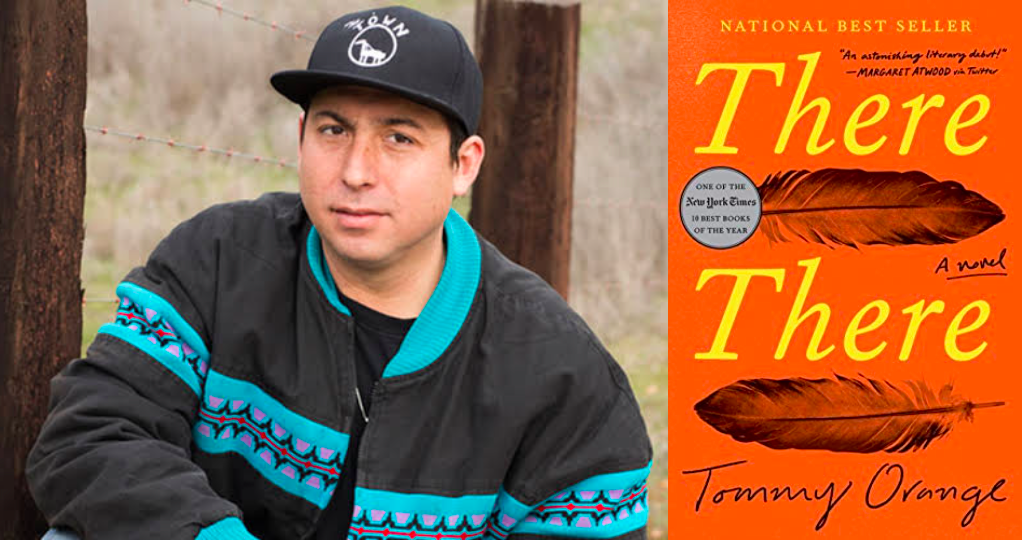This past weekend, Delaware, Ohio was thrilled to have award-winning author Tommy Orange visit the Delaware County District Library for a reading and conversation about his book, There There. The conversation was moderated by OWU Associate English Professor Amy Butcher and recently retired OWU Associate English Professor Karen Poremski.
Tommy Orange is the author of the New York Times best-selling novel There There. The novel was published in 2018 and was a finalist for the Pulitzer Prize and earned Orange the 2019 American Book Award. The novel has also won the PEN/Hemingway Award, the National Book Critics Circle John Leonard Prize, the Center for First Fiction Novel Prize, and has been listed on countless “Book of the Year” lists. While the novel is fiction, it contains many aspects of Orange’s life. Orange was born and raised in Oakland, California and is a member of the Cheyenne and Arapaho tribes. He is a 2014 MacDowell Fellow and a 2016 Writing by Writers Fellow. He is also a graduate of the Institute of American Indian Arts MFA program.
There There is Orange’s debut novel and tells the story of twelve characters, each with their own reasons for traveling to the Big Oakland Powwow. Through their stories, Tommy Orange creates an overarching narrative about the lives of urban Native Americans and the unique challenges they face. The characters of this story deal with addiction, abuse, and suicide, all whilst grappling with themes of identity and the misrepresentation of Native Americans throughout history.
When Tommy Orange visited Delaware, he joined us for a highly engaging “fireside chat” in which he read a few passages and also shared his motivations for writing the book, as well as the broader messages he hopes his work portrays. Joined by two professors, both of whom have experience reading and teaching Orange’s work, the conversation began with a reading from the introduction of the novel where he adresses the assimilation of Native Americans and the misrepresentations of their culture. He says, “We did not move to cities to die,” (Orange 9). Instead, he describes both the sense of finding community, and also the feeling of being at war with the city. At his reading, he explained that this new space within urban settings was a consequence of the Indian Relocation Act and the Indian Termination Act, both of which have been undertaught in the school system.
In addition to this reading and discussion, Orange accepted audience questions and some precomposed questions from local high schoolers. He was asked questions about his writing process and inspirations, as well as the intended reception of his book. We learned that Orange did not write this about himself, however, he did include a character in his likeness and uses the novel to articulate experiences of his identity. Following these questions, Orange generously agreed to sign books and continue various conversations about his life and work. We would like to extend sincere gratitude to the Delaware County District Library for hosting the event, Professors Amy Butcher and Karen Poremski for moderating the event, and Tommy Orange for sharing his brilliant work and insights.

